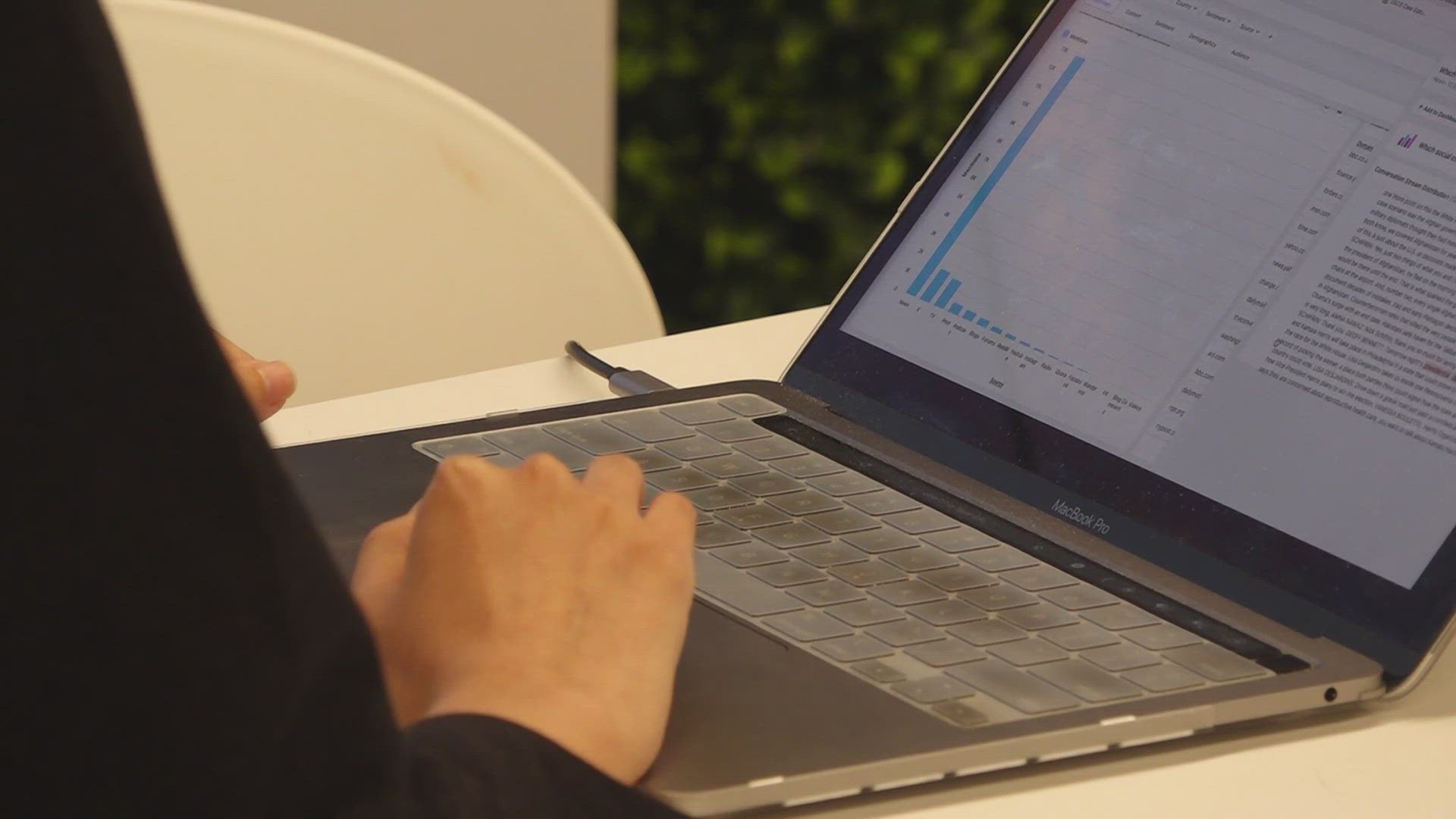KNOXVILLE, Tenn. — Tuesday marked the first presidential debate between Republican nominee Donald Trump and Democratic nominee Kamala Harris.
The University of Tennessee's Adam Brown Social Media Command Center shared the technology it uses to track what people are posting on social media before, during and after the debate. It tracks the amount of engagement people have with the debate online, their sentiment toward it and key terms during it.
"It just went up from 978 to 979 billion. That means, 'Dude, okay, that's kind of trippy,'" said Matthew Pittman, Assistant Professor of Advertising and Public Relations at UT.
In the digital age, social media plays a vital role during election season.
"It gives incredible insight into who is posting what on what platform, where they are and what those citizens are concerned about," said Pittman.
Through different software, organizing the data from posts around the world can be done with the touch of a button. The data can help understand what voters think ahead of Election Day.
"The value of tracking social in real-time is you figure out what's working and what's not and, either where we need to get on message on brand, or, 'This was a joke that you made that people really latched on to. Okay, let's figure out a way to get behind that and make that more meaningful,'" said Pittman.
By searching keywords like "presidential debate," researchers can identify the most popular hashtags and the emotions behind most posts.
"They can still see which issues are most salient and where certain areas respond to different parts of the debate. So that can clue them into, 'Oh if I happen to go through there on the campaign trail, this is what I'll talk about because when I mentioned that during the debate, that area lit up in terms of engagement,'" said Pittman.
Presidential debates can be vital for the image of a candidate, and social media can help determine if a voter's mind was changed after watching.
"No matter what is fact or what's not people believe what they see," said Lilly Evans, a UT communications student. "So it's kind of like what all are they seeing and what all in turn, what is that making them believe?"
For some young voters, social media doesn't just reflect the conversation — it shapes it.
"You never know what little saying the internet might just explode about or pick up on," said Evans.

